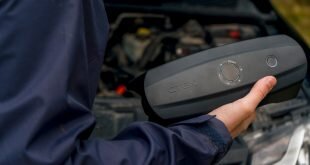Beware the dangers of jump starting

If you find yourself with a flat battery, you may be tempted to jump start your car from another vehicle, using jump leads, or from a battery booster pack.
But while this may get you going again, did you know that jump starting can damage your vehicle’s sensitive electronics, leading to expensive repairs, as well as causing lasting damage to your battery?
Today’s modern vehicles have more than 200 mini computers or ECUs (electronic control units) performing a range of tasks from engine management to controlling air conditioning, lights and parking sensors. These computer systems have a sensitive level of around 16 volts, but jump starting the lead acid battery on your car causes a surge of power of up to 20 volts – rather like hitting your car’s electrical system with a lightning bolt – and this sudden spike in voltage can quite easily blow one of these ECUs. And with replacement ECUs costing hundreds of pounds, this is a risk you really don’t want to be taking!
What happens when you jump start a car?
When you jump start a car, the battery booster pack – or, if you are using jump leads, the battery on the connected vehicle – acts as a power reservoir to get the engine started, temporarily bypassing the drained battery. Then, once the engine is running and you disconnect the booster pack or jump leads, the alternator suddenly sees an empty battery and instantly reacts by opening the floodgates to refill it. This massive rise in current creates a spike in voltage, and this is what can cause the damage.
Jump starting a car can damage your battery too, as the alternator is pumping in current at a higher rate than the battery can handle. This causes the battery to heat up, bending the battery plates, leading to the shedding of active material (lead dioxide) and causing a buildup of debris in the bottom of the battery. This damage will reduce the efficiency of your battery and dramatically reduce its lifespan, making earlier replacement necessary.
Safe starting with CS FREE
But you’ll be pleased to hear that there is a safe way to get your car started safely if you find yourself with a flat battery. CTEK’s fully portable CS FREE uses patented adaptive boost technology to get you going again in around 15 minutes.
This is completely safe for your vehicle’s electronics, because the CS FREE gently refills the battery with charge and will let you know when it’s safe to start the car. Then, when the CS FREE is disconnected, the battery is already half full, so the alternator only raises charge slightly, and within safe limits, to top up the battery.
The CS FREE is actually four great products in one portable unit. As well as being an adaptive booster, CS FREE also works as a battery charger, a smart maintainer and high tech power bank. And if you use the CS FREE to maintenance charge your battery on a regular basis, you can actually extend battery life by up to three times.
You can find more information about the CS FREE, which is compatible with all types of 12V lead-acid battery as well as lithium (12V LiFePO4) batteries, here.

